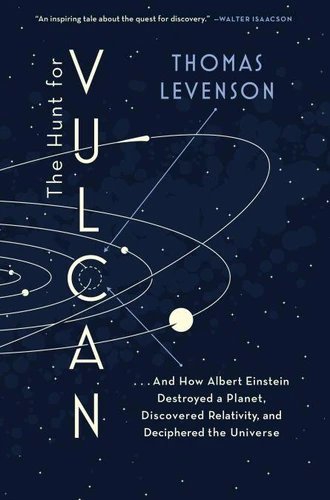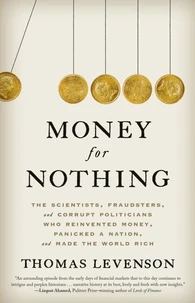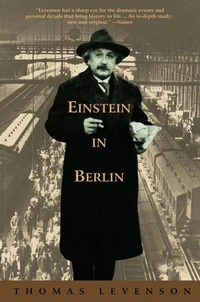The Hunt for Vulcan. . . . And How Albert Einstein Destroyed a Planet, Discovered Relativity, and Deciphered the Universe
Par :Formats :
Disponible dans votre compte client Decitre ou Furet du Nord dès validation de votre commande. Le format ePub protégé est :
- Compatible avec une lecture sur My Vivlio (smartphone, tablette, ordinateur)
- Compatible avec une lecture sur liseuses Vivlio
- Pour les liseuses autres que Vivlio, vous devez utiliser le logiciel Adobe Digital Edition. Non compatible avec la lecture sur les liseuses Kindle, Remarkable et Sony
- Non compatible avec un achat hors France métropolitaine
 , qui est-ce ?
, qui est-ce ?Notre partenaire de plateforme de lecture numérique où vous retrouverez l'ensemble de vos ebooks gratuitement
Pour en savoir plus sur nos ebooks, consultez notre aide en ligne ici
- Nombre de pages256
- FormatePub
- ISBN978-0-8129-8829-1
- EAN9780812988291
- Date de parution03/11/2015
- Protection num.Adobe DRM
- Taille9 Mo
- Infos supplémentairesepub
- ÉditeurRandom House
Résumé
The captivating, all-but-forgotten story of Isaac Newton, Albert Einstein, and the search for a planet that never existed For more than fifty years, the world's top scientists searched for the "missing" planet Vulcan, whose existence was mandated by Isaac Newton's theories of gravity. Countless hours were spent on the hunt for the elusive orb, and some of the era's most skilled astronomers even claimed to have found it.
There was just one problem: It was never there. In The Hunt for Vulcan, Thomas Levenson follows the visionary scientists who inhabit the story of the phantom planet, starting with Isaac Newton, who in 1687 provided an explanation for all matter in motion throughout the universe, leading to Urbain-Jean-Joseph Le Verrier, who almost two centuries later built on Newton's theories and discovered Neptune, becoming the most famous scientist in the world.
Le Verrier attempted to surpass that triumph by predicting the existence of yet another planet in our solar system, Vulcan. It took Albert Einstein to discern that the mystery of the missing planet was a problem not of measurements or math but of Newton's theory of gravity itself. Einstein's general theory of relativity proved that Vulcan did not and could not exist, and that the search for it had merely been a quirk of operating under the wrong set of assumptions about the universe.
Levenson tells the previously untold tale of how the "discovery" of Vulcan in the nineteenth century set the stage for Einstein's monumental breakthrough, the greatest individual intellectual achievement of the twentieth century. A dramatic human story of an epic quest, The Hunt for Vulcan offers insight into how science really advances (as opposed to the way we're taught about it in school) and how the best work of the greatest scientists reveals an artist's sensibility.
Opening a new window onto our world, Levenson illuminates some of our most iconic ideas as he recounts one of the strangest episodes in the history of science. Praise for The Hunt for Vulcan "Delightful .
There was just one problem: It was never there. In The Hunt for Vulcan, Thomas Levenson follows the visionary scientists who inhabit the story of the phantom planet, starting with Isaac Newton, who in 1687 provided an explanation for all matter in motion throughout the universe, leading to Urbain-Jean-Joseph Le Verrier, who almost two centuries later built on Newton's theories and discovered Neptune, becoming the most famous scientist in the world.
Le Verrier attempted to surpass that triumph by predicting the existence of yet another planet in our solar system, Vulcan. It took Albert Einstein to discern that the mystery of the missing planet was a problem not of measurements or math but of Newton's theory of gravity itself. Einstein's general theory of relativity proved that Vulcan did not and could not exist, and that the search for it had merely been a quirk of operating under the wrong set of assumptions about the universe.
Levenson tells the previously untold tale of how the "discovery" of Vulcan in the nineteenth century set the stage for Einstein's monumental breakthrough, the greatest individual intellectual achievement of the twentieth century. A dramatic human story of an epic quest, The Hunt for Vulcan offers insight into how science really advances (as opposed to the way we're taught about it in school) and how the best work of the greatest scientists reveals an artist's sensibility.
Opening a new window onto our world, Levenson illuminates some of our most iconic ideas as he recounts one of the strangest episodes in the history of science. Praise for The Hunt for Vulcan "Delightful .
The captivating, all-but-forgotten story of Isaac Newton, Albert Einstein, and the search for a planet that never existed For more than fifty years, the world's top scientists searched for the "missing" planet Vulcan, whose existence was mandated by Isaac Newton's theories of gravity. Countless hours were spent on the hunt for the elusive orb, and some of the era's most skilled astronomers even claimed to have found it.
There was just one problem: It was never there. In The Hunt for Vulcan, Thomas Levenson follows the visionary scientists who inhabit the story of the phantom planet, starting with Isaac Newton, who in 1687 provided an explanation for all matter in motion throughout the universe, leading to Urbain-Jean-Joseph Le Verrier, who almost two centuries later built on Newton's theories and discovered Neptune, becoming the most famous scientist in the world.
Le Verrier attempted to surpass that triumph by predicting the existence of yet another planet in our solar system, Vulcan. It took Albert Einstein to discern that the mystery of the missing planet was a problem not of measurements or math but of Newton's theory of gravity itself. Einstein's general theory of relativity proved that Vulcan did not and could not exist, and that the search for it had merely been a quirk of operating under the wrong set of assumptions about the universe.
Levenson tells the previously untold tale of how the "discovery" of Vulcan in the nineteenth century set the stage for Einstein's monumental breakthrough, the greatest individual intellectual achievement of the twentieth century. A dramatic human story of an epic quest, The Hunt for Vulcan offers insight into how science really advances (as opposed to the way we're taught about it in school) and how the best work of the greatest scientists reveals an artist's sensibility.
Opening a new window onto our world, Levenson illuminates some of our most iconic ideas as he recounts one of the strangest episodes in the history of science. Praise for The Hunt for Vulcan "Delightful .
There was just one problem: It was never there. In The Hunt for Vulcan, Thomas Levenson follows the visionary scientists who inhabit the story of the phantom planet, starting with Isaac Newton, who in 1687 provided an explanation for all matter in motion throughout the universe, leading to Urbain-Jean-Joseph Le Verrier, who almost two centuries later built on Newton's theories and discovered Neptune, becoming the most famous scientist in the world.
Le Verrier attempted to surpass that triumph by predicting the existence of yet another planet in our solar system, Vulcan. It took Albert Einstein to discern that the mystery of the missing planet was a problem not of measurements or math but of Newton's theory of gravity itself. Einstein's general theory of relativity proved that Vulcan did not and could not exist, and that the search for it had merely been a quirk of operating under the wrong set of assumptions about the universe.
Levenson tells the previously untold tale of how the "discovery" of Vulcan in the nineteenth century set the stage for Einstein's monumental breakthrough, the greatest individual intellectual achievement of the twentieth century. A dramatic human story of an epic quest, The Hunt for Vulcan offers insight into how science really advances (as opposed to the way we're taught about it in school) and how the best work of the greatest scientists reveals an artist's sensibility.
Opening a new window onto our world, Levenson illuminates some of our most iconic ideas as he recounts one of the strangest episodes in the history of science. Praise for The Hunt for Vulcan "Delightful .






